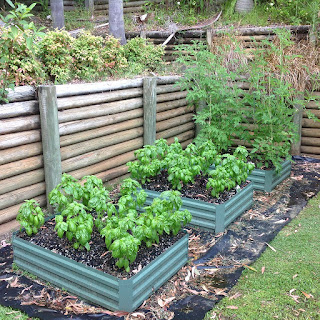What Is Organic Gardening?

This is a special post from our friends at GardenHugs.com
Organically Grown
Gardening is one of the most popular and rewarding hobbies to pursue. One of the most rewarding aspects of edible gardening is that you get to directly control the quality of the food you eat. Produce which is purchased in a grocery store may have been picked days or weeks before reaching the store. Along its journey towards your plate, it may have been treated with chemical substances designed to reduce pests, increase the size of the fruit, or improve its appearance. Many people believe that this reliance on chemicals to produce our foodstuffs is dangerous to our health, and to the health of our planet. Gardening at home means that you are free to garden organically, using materials that occur naturally and have a beneficial impact on the environment.What Does Organic Gardening Really Mean?
When we talk about organic gardening, what do we really mean? Organic gardeners have made a choice to avoid chemicals and artificial substances in their gardening. Rather than buy a bag of chemical fertilizer, they would choose to build soil fertility with naturally occurring materials. Instead of spraying chemicals to kill insects and other garden pests, the organic gardener would look for an environmentally friendly solution to the problem. Organic gardening, therefore, is technically gardening without artificially occurring chemicals. In practice, organic gardening means gardening in a way that not only benefits humans, but also minimally impacts the balances of nature.What Are the Benefits of Organic Gardening?
There are many benefits to garden using organic methods. For one thing, the end product of your labors will fill your larder. Organic foods command premium prices, but organic gardening at home is very cost-effective. You will be creating many of your soil improvers, fertilizers and pest deterrents at home, so costs should stay very low. Having an organic vegetable garden will provide a significant supplement to your grocery bill.Organic gardening is also a wonderful way to get some exercise. Many of the methods used require a fair amount of activity. Digging, turning compost, weeding by hand and carrying buckets of compost tea are all great ways to burn calories and have fun doing it. Finally, by organic gardening, you will be helping the environment you live in.
Our planet is changing right before our eyes. Many of the familiar species we grew up with, like honeybees, are struggling to survive in the world of technology, chemical reliance, and human activity. Now more than ever it is vital that humans learn to work with nature instead of against her. Organic gardening provides a safe haven for wildlife, and actually improves the immediate and larger environment.



Comments
Post a Comment